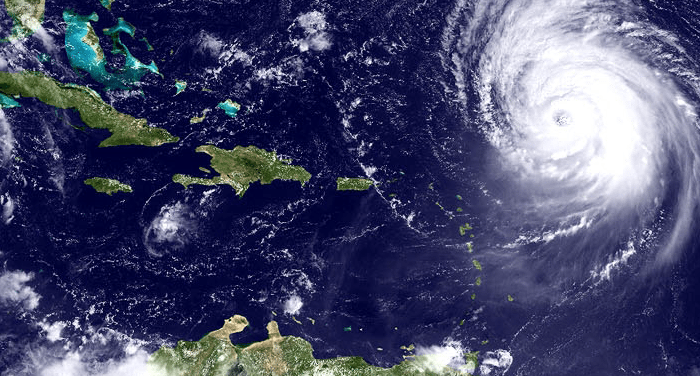
The Caribbean Climate Smart Coalition
At the One Planet Conference in Paris, leaders of a number of Caribbean islands came together to sign a new Charter of the Caribbean Climate Smart Coalition.
Dante Disparte, the chairman of ASP’s Business Council and the founder and CEO of Risk Cooperative, contributed to the formation of this coalition and is an early supporter of the charter issuing the following statement.
The Caribbean is among the most vulnerable regions of the world to the effects of climate change. The combination of sea level rise, extreme weather, poverty, and poor infrastructure could have devastating effects across the region. That is why climate change is a security issue. Of course, this comes as no surprise to those living in the Caribbean. The devastation from Hurricanes Irma and Maria during the 2017 hurricane season showed how extreme weather can destroy the trappings of modern life and undermine decades of investment. Areas of Puerto Rico have endured months without power.
While 2017’s victims are still feeling the effects of these hurricanes, governments, businesses, and individuals should be focused on find a way to “Build Back Better” in those areas that were harmed, while also retrofitting existing infrastructure to be prepared for the disasters to come. The seven areas of action proposed in the Charter of the Caribbean Climate-Smart Coalition is a good start:
- Community Shelter and Housing
- Renewable Energy and Energy Efficiency
- Tourism, Coastal Resilience and the Blue Economy
- Physical Infrastructure
- Government Systems and Security
- Food Security, Water and Climate Smart Agriculture
- Building Human Capacity for Regeneration and Resilience
The Coalition will encourage work in these seven areas through financing provided by multilateral development banks, private foundations, and direct foreign aid. The leaders anticipate that the plan will drive up to $8 billion in investment for their islands.
The United States has an important role to play as a leader of this region, but the American government’s presence is notable in its absence. Florida shares many of the same vulnerabilities as the islands, which the American territories of Puerto Rico and the US Virgin Islands have been some of the hardest hit by extreme weather. Unfortunately, leadership is so far lacking from the United States. There has been no high-level interest from the Trump Administration in any climate negotiations since the withdrawal from the Paris Accord. Moreover, there has been very little high-level interest or engagement in the Caribbean, other than the misguided attempt to isolate Cuba.
To show how engagement can work, during the Obama Administration, by contrast the Caribbean Energy Security Initiative, led by Vice President Biden, showed how American leadership can catalyze investment, without a large amount of American spending. Only the United States has the ability to convene donors, Caribbean leaders, and businesses together. When combined with the soft power necessary to break through barriers to change, this initiative showed great results in driving the islands to becoming more resilient and energy secure. This is good for the U.S. because it increases our influence in the region (important in a region where we have real security challenges) and reduces risk for those living there (thereby reducing pressures for migration to American shores).
Beyond American involvement in the Caribbean Climate-Smart Coalition, it is somewhat surprising that the coalition does not include larger islands in the Greater Antilles. As Puerto Rico’s experience with Maria shows, size does not provide protection from extreme weather. Haiti, the Dominican Republic, Cuba, and Puerto Rico are notable in their absence from the Charter.
The Charter is an important idea. With further support, and greater participation, it could revolutionize the region. Dante Disparte said about the Charter:
“If there is to be a silver lining in the unprecedented damage wrought across the Caribbean, it is to prove that in the face of climate change we are no longer islands unto ourselves.”





